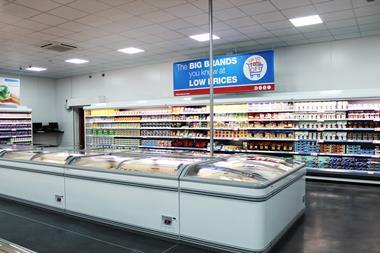Hungry for change
By Gaelle Walker2019-01-23T00:00:00

Living in food poverty is a harsh reality for a growing number of people in the UK. C-Store talks to c-store retailers trying to help those in need, and looks at what more can be done.
ALREADY HAVE A REGISTERED USER ACCOUNT? PLEASE LOG IN HERE
To read the full story join the ConvenienceStore.co.uk community today!
Registration is quick and easy and provides access to:
- Unlimited ConvenienceStore.co.uk articles
- Our great range of newsletters
- Content you’ve saved for later via the ‘my library’ feature
And much more…
Related articles
More from News
Unlimited Access + Newsletters
Register today to gain unlimited access to articles and to receive our great range of email newsletters.































